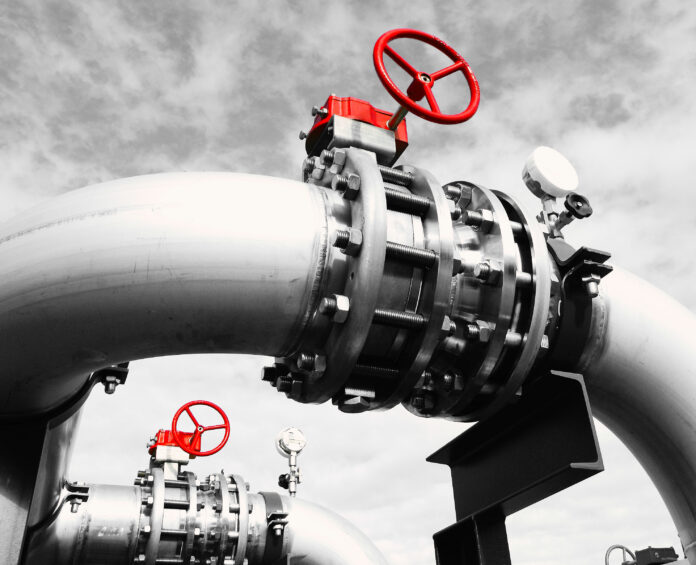(The Center Square) — On Friday, the Biden administration paused approvals for new liquefied natural gas exports to review the environmental standards used in the process.
Doing so, critics say, may only undermine global emissions targets and lengthen the reliance on coal.
“We have an evolving understanding of the market need for LNG, the long-term supply of LNG, and the perilous impacts of methane on our planet. We also must adequately guard against risks to the health of our communities,” the administration announced. “Through existing LNG production and export infrastructure, the U.S. has – and will continue – to deliver for our allies.”
LNG hubs are concentrated on the Gulf Coast; Pennsylvania officials were looking to build one south of Philadelphia, but its future is now uncertain.
“With Biden’s decision, it’s gonna put everything on hold,” said Rep. Martina White, R-Philadelphia. “An LNG hub in the southeast region would have created tens of thousands of family-sustaining union jobs … we’re gonna continue to explore what the options are for us and how we can grow jobs and make sure the energy sector in Pennsylvania is expanding.”
White chairs the Philadelphia LNG Task Force and called for Gov. Josh Shapiro to lobby the White House to reverse its decision.
“It’s wild to think that our governor can pick up the phone and save the William Penn statue here in Philadelphia … but he can’t pick up the phone and save an entire industry in our commonwealth,” she said.
Environmentalists in the commonwealth, however, were pleased with the decision.
“We think that it’s an amazing announcement,” said Adam Nagel, director of government affairs for PennFuture. “It leads to potentially better protections for communities, families, and residents.”
He called the pause a common-sense decision and argued that LNG doesn’t have as much of a rosy future as industry advocates tell the public.
“I think it’s another important signal from the Biden administration that Pennsylvania needs to be focusing more on renewable energy,” Nagel said. “We are far behind in Pennsylvania on building out a renewable energy economy and we need to take a serious look at how we can do that and do that quickly.”
Leaders from the gas and oil industry quickly sent a letter to the Department of Energy in opposition to the pause, warning of the harms caused by delaying LNG projects.
“This is a win for Russia and a loss for American allies, U.S. jobs and global climate progress,” said Mike Sommers, president and CEO of the American Petroleum Institute. “There is no review needed to understand the clear benefits of U.S. LNG for stabilizing global energy markets, supporting thousands of American jobs and reducing emissions around the world by transitioning countries toward cleaner fuels.”
For Pennsylvania, the LNG pause reflects a long-standing issue: Administrative delays have kept natural gas production from keeping up with states like Texas and Louisiana.
“Restrictive policies and permitting challenges limit Pennsylvania’s ability to build out the critical energy infrastructure that’s needed in the region to bring natural gas to market and deliver LNG to our allies overseas,” said Stephanie Catarino Wissman, executive director of API-Pennsylvania.
Those arguments, though, aren’t persuasive to skeptics.
“Industry and their supporters are throwing lots of things at the wall to see what sticks to further pad their bottom line,” Nagel said. “Ultimately, we need to be focused on reducing emissions as quickly as we possibly can.”
Concerns over supplying Europe with LNG to lessen Russian dependence have been overblown, as European imports of Russian gas have dramatically fallen in recent years.
However, for emissions reduction, LNG could drive some dramatic improvements. Natural gas has displaced coal in Pennsylvania and driven down emissions — from 2008-2020, emissions fell by 42%. A similar dynamic is at play in Asia, where much of the demand for LNG comes from.
“Natural gas is one of the mainstays of global energy,” said Fatih Birol, executive director of the International Energy Agency. “Where it replaces more polluting fuels, it improves air quality and limits emissions of carbon dioxide.”
Current LNG exports to Europe may not be a pressing security need to undermine Russian gas, but growing energy demands in Asia create an opportunity for American LNG to displace coal and other more-polluting forms of energy.
“Coal-to-liquefied natural gas (LNG) switching provides net greenhouse gas emissions reductions, usually between 40-50%, meaning the extent of global emissions reductions from coal displacement will be in part determined by how much U.S. liquefied natural gas reaches overseas coal-using nations,” Paul Bledsoe argued for the Progressive Policy Institute.
Growing LNG exports to Asia, he said, could cut emissions while preventing Russian domination in new gas markets.
For her part, White sees the LNG pause as emblematic of the current federal approach, not a one-off change.
“This is definitely where the Biden administration stands,” she said. “I don’t think there’s any real consideration of the real ramifications for us, nationally or globally.”




